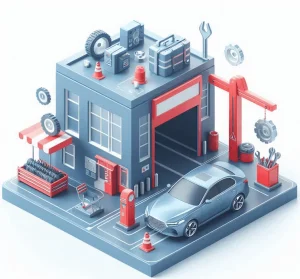Table of Contents
Jeep Oil Changes When it comes to tackling rugged terrains and exploring the great outdoors, few vehicles are as iconic and capable as a Jeep. From the versatile Wrangler to the robust Grand Cherokee, Jeeps are designed to handle the toughest off-road conditions. However, to ensure that your Jeep continues to perform at its best, regular Jeep Oil Changes are essential. Let’s explore why these routine maintenance tasks are so crucial and how they can significantly enhance your Jeep’s performance.

The Crucial Role of Engine Oil
Engine oil is the lifeblood of your Jeep, playing several key roles that keep the engine running smoothly and efficiently. Understanding these roles can help you appreciate the importance of regular Jeep Oil Changes.
Lubrication
Engine oil provides lubrication to the numerous moving parts within the engine. This lubrication reduces friction, which in turn minimizes wear and tear on engine components. Without regular oil changes, the oil can become contaminated and lose its lubricating properties, leading to increased friction and potential engine damage.
Cooling
While the primary cooling system in your Jeep involves coolant and a radiator, engine oil also helps to dissipate heat. As it circulates through the engine, the oil absorbs heat from the moving parts and helps to maintain a stable engine temperature. Over time, oil can degrade and lose its cooling efficiency, making regular Jeep Oil Changes vital to prevent overheating.
Cleaning
Engine oil acts as a cleaning agent, capturing dirt, debris, and combustion by-products and carrying them away from the engine components. This helps to keep the engine clean and prevent the buildup of harmful deposits. Fresh oil is more effective at cleaning, which is why regular Jeep Oil Changes are necessary.
Protection
Engine oil also provides a protective barrier against rust and corrosion. It coats the metal surfaces within the engine, preventing moisture and other contaminants from causing oxidation. Over time, oil can break down and lose its protective properties, making regular Jeep Oil Changes crucial for ongoing engine protection.
The Unique Demands of Off-Roading
Jeeps are built for adventure, often facing challenging off-road conditions that can put additional strain on the engine. This makes regular Jeep Oil Changes even more important for off-road enthusiasts.
Extreme Conditions
Off-roading exposes your Jeep to extreme conditions, such as steep inclines, deep mud, and rocky terrains. These conditions can cause the engine to work harder and generate more heat. High-quality, fresh oil helps to ensure that the engine can handle these demands without overheating or experiencing undue wear.
Dust and Dirt
Driving off-road often means encountering a lot of dust and dirt, which can find its way into the engine. Engine oil helps to capture and remove these particles, preventing them from causing damage. However, oil can become saturated with contaminants over time, reducing its effectiveness. Regular Jeep Oil Changes ensure that your engine oil remains clean and effective at protecting your engine.
Frequent Low-Speed Driving
Off-roading often involves driving at low speeds and idling for extended periods. This can lead to higher engine temperatures and increased stress on the oil. Regular Jeep Oil Changes help to ensure that the oil maintains its viscosity and ability to protect the engine under these conditions.
Consequences of Neglecting Oil Changes
Neglecting regular Jeep Oil Changes can lead to a range of problems, some of which can be costly and time-consuming to fix. Understanding these consequences highlights the importance of staying on top of your oil change schedule.
Increased Engine Wear
Without regular oil changes, the oil in your engine can become contaminated and lose its lubricating properties. This increases friction between the moving parts, leading to accelerated wear and tear. Over time, this can result in significant engine damage that may require extensive repairs or even a complete engine rebuild.
Overheating
Degraded oil loses its ability to effectively cool the engine. This can lead to overheating, which can cause serious damage to engine components. Overheating can warp engine parts, damage the head gasket, and even lead to catastrophic engine failure.
Poor Performance
Dirty or degraded oil can affect the overall performance of your Jeep. You might notice a decrease in power, sluggish acceleration, or reduced fuel efficiency. Regular Jeep Oil Changes help to ensure that your engine is always operating at peak performance.
Engine Sludge
Over time, old oil can break down and form a thick, tar-like substance known as engine sludge. This sludge can clog oil passages, restrict oil flow, and significantly reduce the effectiveness of the oil. Engine sludge can lead to a range of problems, from minor performance issues to major engine damage.
Voiding the Warranty
For newer Jeeps, neglecting regular oil changes can void your warranty. Jeep, like most manufacturers, requires proof of regular maintenance to honor warranty claims. Failing to keep up with Jeep Oil Changes can leave you without coverage if something goes wrong with your engine.
Benefits of Regular Jeep Oil Changes
On the other hand, adhering to a regular oil change schedule offers numerous benefits that go beyond just avoiding problems. These benefits enhance your driving experience and protect your investment in the long run.
Optimal Engine Performance
Regular Jeep Oil Changes ensure that your engine always has fresh, clean oil, which helps it run smoothly and efficiently. You’ll enjoy optimal performance, with your engine delivering the power and responsiveness that you expect from a Jeep.
Extended Engine Life
By keeping your engine well-lubricated and clean, regular oil changes help to reduce wear and tear, extend the life of your engine, and protect against potential damage. This means you can enjoy your Jeep for many more miles and years.
Improved Fuel Efficiency
Clean engine oil reduces friction and allows your engine to run more efficiently. This can lead to improved fuel efficiency, saving you money on fuel and reducing your environmental footprint.
Reduced Emissions
Old, dirty oil can contribute to increased emissions as the engine burns oil along with fuel. Fresh oil helps your engine run more cleanly, reducing harmful emissions and helping you do your part for the environment.
Peace of Mind
There’s a certain peace of mind that comes with knowing your Jeep is well-maintained. Regular Jeep Oil Changes are a key part of that maintenance, ensuring that your engine is protected and performing at its best. This peace of mind allows you to enjoy your Jeep to the fullest, without worrying about potential engine problems.
The Process of a Jeep Oil Change
Understanding the process of a Jeep Oil Change can help you appreciate the meticulous care that goes into maintaining your vehicle. Here’s what typically happens during an oil change at a Jeep service center.
Draining the Old Oil
The first step is to drain the old oil from the engine. This involves removing the oil drain plug and allowing the oil to flow out into a collection pan. The technician will also remove the old oil filter at this stage.
Inspecting and Cleaning
Once the old oil has been drained, the technician will inspect the oil and filter for any signs of contamination or abnormal wear. This can provide valuable insights into the condition of your engine. The oil drain plug and surrounding area are also cleaned to ensure there are no residual contaminants.
Replacing the Oil Filter
A new oil filter is essential to trap dirt and debris, keeping the new oil clean as it circulates through the engine. The technician will install a new Jeep-approved oil filter, ensuring it is properly seated and secure.
Adding Fresh Oil
With the new filter in place, the technician will add fresh, Jeep-recommended oil to the engine. The amount and type of oil will be specific to your Jeep model, ensuring optimal performance and protection.
Checking for Leaks
After adding the new oil, the technician will start the engine and let it run for a few minutes. This allows the new oil to circulate and gives the technician an opportunity to check for any leaks. They will also check the oil level and top it off if necessary.
Final Inspection
The final step is a thorough inspection of the engine and surrounding components. The technician will check for any signs of leaks, wear, or other issues that may need attention. Once everything is confirmed to be in good order, the oil change is complete, and your Jeep is ready to hit the road.
When to Schedule Your Jeep Oil Change
Knowing when to schedule your Jeep Oil Changes is crucial for maintaining engine health. While the exact interval can vary depending on your specific model and driving conditions, here are some general guidelines.
Manufacturer Recommendations
Jeep provides specific recommendations for oil change intervals in the owner’s manual. These recommendations are based on extensive testing and are designed to ensure optimal engine performance and longevity. For most modern Jeeps, the recommended interval is typically every 7,500 miles or once a year, whichever comes first.
Driving Conditions
If you frequently drive in severe conditions—such as very hot or cold weather, heavy traffic, or on dusty roads—you may need to change your oil more frequently. These conditions can accelerate the degradation of the oil, necessitating more frequent changes to maintain engine health.
Monitoring Oil Levels and Quality
Regularly checking your oil level and quality can help you determine when an oil change is needed. If the oil appears dirty or if the level is consistently low, it’s a good indication that it’s time for a change. Modern Jeeps are equipped with sensors and onboard diagnostics that can alert you when it’s time for an oil change, making it easier to stay on top of maintenance.
Jeep Oil Changes
Regular Jeep Oil Changes are not just a routine maintenance task; they are a critical component of keeping your Jeep’s engine running smoothly and efficiently. By ensuring proper lubrication, cooling, cleaning, and protection, oil changes help to maintain the high performance and reliability that Jeep is known for. Neglecting this essential maintenance can lead to severe engine problems, while adhering to a regular oil change schedule offers numerous benefits, including optimal performance, extended engine life, improved fuel efficiency, and peace of mind.
Treat your Jeep to the care it deserves with regular oil changes, and you’ll be rewarded with a driving experience that is both exhilarating and enduring. Whether you’re navigating the urban jungle or conquering the wildest trails, a well-maintained Jeep ensures that every journey is an adventure worth savoring.






More Stories
Powerful Secrets Every Cars Mechanic Knows for a Smoother, Happier Drive
Transform Your Ride: Discover the Joy of Automotive Refinishing Mastery
Celebrate Automotive Beauty: Proven Auto Restoration Parts for Brilliant Results